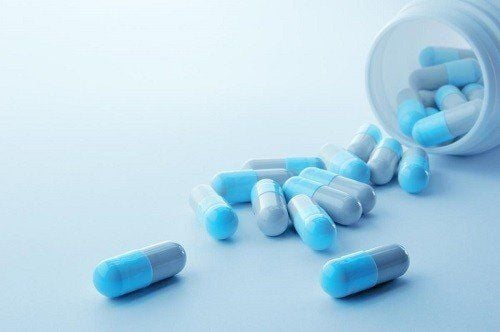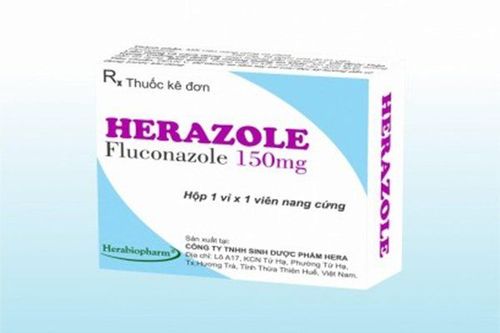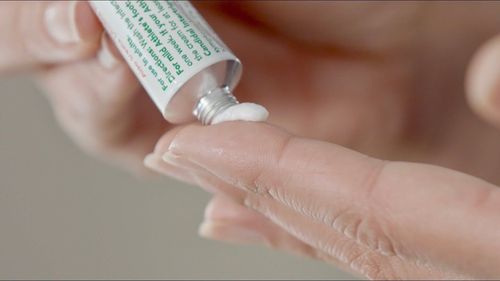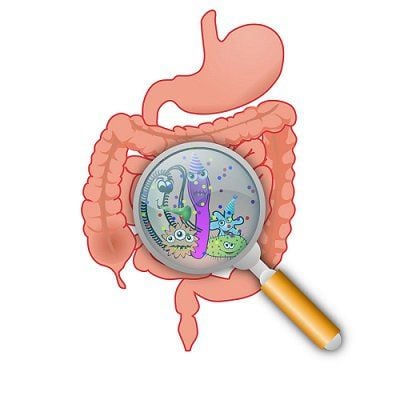This is an automatically translated article.
Sporacid is an antifungal drug indicated in the cases of nail fungus, throat fungus, oral thrush, ringworm, vulvar and vaginal candidiasis,... So what is the use of Sporacid?
1. What are the effects of Sporacid?
Sporacid belongs to the group of antifungal drugs with the main ingredient being itraconazole 100mg. In particular, itraconazole is an active ingredient in the group of broad-spectrum antifungal drugs prepared from triazole, effective against many surface and systemic fungi, especially candida strains. Sporacid acts by binding to the fungal cytochrome P450 enzyme and slowing down the synthesis of ergosterol and disrupting the permeability of fungal cell membranes.Sporacid is absorbed from the gastrointestinal tract with a maximum concentration of 1.5-4 hours after oral administration. Up to 95% of the drug is bound to plasma proteins and is distributed throughout the body. For some tissues of the body, concentrations of Sporacid may be 10 times greater than in plasma. The half-life of Sporacid is 20 hours in a single dose and may be longer than 30 hours with repeated administration. Sporacid is metabolised in the liver and is excreted in the urine and bile.
2. Indications and contraindications of the drug Sporacid
2.1 Indications for the use of Sporacid The indications for the use of Sporacid include:
Treatment of vulvovaginal, vaginal and vaginal candidiasis Skin fungus Keratitis caused by oral candidiasis Some strains of fungi are resistant such as oral throat, skin, nails, limbs, meninges and lungs,... Prevention of fungal recurrence in patients with leukopenia and HIV/AIDS infection. 2.2 Contraindications to the use of Sporacid The use of Sporacid is contraindicated in the following cases:
History of hypersensitivity to any component of the drug, hypersensitivity to itraconazole and other triazoles. Women who are pregnant
3. Usage and dosage of Sporacid
Sporacid is a hard capsule that should be taken orally after meals. Dosage will be based on the patient's condition and may vary depending on response to treatment, and use for more than 1 month is not recommended.Treatment of superficial fungal: The dose is 100mg/day. Treat within 15 days for tinea versicolor of the thighs, trunk, and oral candidiasis. 30 days for tinea versicolor of the feet and hands. Dosage 200mg/day. Treat for 3 days for vaginal candidiasis and 3 weeks for fungal keratitis. Treatment of systemic fungal: The dose is 200mg/day and the dose can be increased up to 400mg/day. Duration of treatment depends on clinical response and the type of fungal infection.
4. Undesirable effects when using the drug Sporacid
Before prescribing, doctors always consider possible side effects. However, it is still inevitable that some unwanted effects may occur during the use of Sporacid such as:Itching Rash Nausea, vomiting Headache Abdominal pain Indigestion Indigestion increased liver enzymes Menstruation ventricular changes often Stevens-johnson syndrome Some serious allergic reactions such as difficulty breathing, edema, swelling of the face, nose, throat, rash,... When these cases occur, the patient should be brought to the hospital immediately. with medical facilities for timely intervention.
5. Some notes when using the drug Sporacid
In the course of treatment, in order to achieve high efficiency when using drugs and minimize unwanted effects, patients need to pay attention to some issues such as:
You need to inform your doctor about your medical history. Hypersensitivity to Sporacid or any other allergy. Sporacid may contain inactive ingredients and could cause an allergic reaction or other serious problems. Medications you are taking that need to be listed for your doctor include prescription and over-the-counter medicines, preservatives, herbs and supplements, other foods, dyes, ... Use Sporacid with caution in patients with liver and kidney failure. The drug is not recommended for use in young patients unless the expected benefit outweighs the possible risk. For pregnant women can be used during pregnancy. However, it is still necessary to take oral contraceptives once in a menstrual cycle after stopping them. For women who are breast-feeding, breast-feeding should be discontinued during treatment with Sporacid. Although symptoms may have been relieved, but before the end of the course of treatment, the patient absolutely must not stop taking the dose or stop using the drug on their own. If you forget to take it, you need to take it as soon as possible. However, the time to add the dose should not be adjacent to the next dose or it is possible to skip the missed dose and continue taking the medication as originally scheduled.
6. Drug interactions
Drug interactions will inevitably change the way the drug works or, more seriously, increase the risk of unwanted effects. In addition, there are medicines that should not be used while being treated with Sporacid. More specifically, in some cases when 2 different drugs can be used together, even though they do interact with each other. In this case the doctor should take other precautions and change the dose of the drug. Therefore, users should inform the doctor about the drugs and supplements you are using.
Some drugs that can interact with Sporacid include:
Phenytoin and rifampicin: Concomitant use with Sporacid may reduce plasma concentrations of itraconazole. Antacids and antihistamines or H2 antagonists may reduce absorption of Sporacid Cyclosporin A Digoxin Warfarin
7. How to store Sporacid
Sporacid drugs are stored under the following conditions:
Store at room temperature; Avoid light; Avoid humid places; Do not store Sporacid in a humid place or in the freezer. Each Sporacid medicine will have its own way of preservation, so before using the medicine, carefully read the instructions for use and storage. Keep the medicine in a cool dry place and out of reach of children. After the drug is no longer expired or damaged, it should be disposed of according to the correct procedure. Do not arbitrarily dispose of Sporacid into an environment such as a water pipe or toilet unless requested. To help protect the environment, consult your waste disposal company or pharmacist on how to safely dispose of Sporacid.
In summary, the drug Sporacid is an antifungal drug indicated in the cases of nail fungus, pharyngitis, oral thrush, ringworm, vulvar and vaginal candidiasis,... However, it is inevitable that the Unexpected side effects occur while taking the drug. Therefore, when the body shows abnormal signs, the patient should be taken to a medical facility immediately for timely treatment.
Follow Vinmec International General Hospital website to get more health, nutrition and beauty information to protect the health of yourself and your loved ones in your family.
Please dial HOTLINE for more information or register for an appointment HERE. Download MyVinmec app to make appointments faster and to manage your bookings easily.













